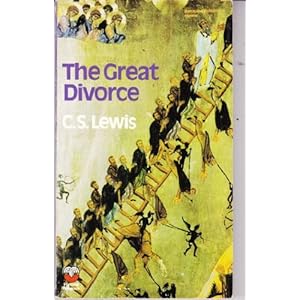In the comments on my post In memory of David Wilkerson Mark D struck what I considered a rather discordant note, and an inappropriate one concerning someone dead but not yet buried, when he wrote:
Ive always liked David Wilkerson but could his speaking against Benny Hinn have something to do with his violent death? God said touch not my anointed! King David understood this truth and would not touch Saul even though he was trying to kill him!
However, there is an important point here. I don’t know exactly what David Wilkerson said about Benny Hinn. And I don’t think God would have struck him dead for it whatever it was – that isn’t how God works. Anyway, the breach between the two cannot have been too serious, for Hinn released a tribute to Wilkerson quickly after his death.
But it is indeed a wrong and dangerous thing to speak against those whom God has anointed for ministry. At least in some Pentecostal and charismatic Christian circles this wrongness and danger is often expressed in the sentence “Touch not the Lord’s anointed”.
This sentence has its origin as “Touch not mine anointed”, spoken by God, in Psalm 105:15 KJV. It is important to note that here “mine anointed” is plural, hence the NIV 2011 rendering of the verse:
Do not touch my anointed ones;
do my prophets no harm.
Psalm 105:15 (NIV 2011)
The poetic parallel suggests that “my anointed ones” here refers to prophets.
The same principle was laid down several times by David when he had the chance to kill King Saul, who was hunting him down:
The LORD forbid that I should do such a thing to my master, the LORD’s anointed, or lay my hand on him; for he is the anointed of the LORD.
1 Samuel 24:6 (NIV 2011);
see also 24:10, 26:9-11,16,23, 2 Samuel 1:14-16
 Here the anointed one, singular, is the king of Israel, Saul. But by this time he was a disobedient and apostate king whom God has rejected (1 Samuel 15:11,26). The Holy Spirit had left him and he was under the influence of evil spirits (16:14). And David had been anointed king in his place (16:12-13). Nevertheless that same David continued to respect Saul as the Lord’s anointed. He fled from him for his own safety (19:10), but refused to take any action against him.
Here the anointed one, singular, is the king of Israel, Saul. But by this time he was a disobedient and apostate king whom God has rejected (1 Samuel 15:11,26). The Holy Spirit had left him and he was under the influence of evil spirits (16:14). And David had been anointed king in his place (16:12-13). Nevertheless that same David continued to respect Saul as the Lord’s anointed. He fled from him for his own safety (19:10), but refused to take any action against him.
Contrast what happened to the person who dared to finish off the dying Saul: David showed no hesitation in killing him (2 Samuel 1:14-16).
What applicability does this have to Christians today? Who is, or are, the Lord’s anointed who should not be touched? Commenter here Andrew Price pointed out correctly that the role of the Old Testament kings was fulfilled in Jesus, whose title “Christ” or “Messiah” means “Anointed One”. The same could be said of the role of the Old Testament anointed prophets. However, the New Testament teaches that every Christian believer, everyone in Christ, has an anointing from the Holy Spirit (1 John 2:20), is a potential prophet (1 Corinthians 14:31), and is even now reigning with Christ (Revelation 20:4 and Ephesians 2:6, as I explained these verses in a previous post).
So, I would argue, every true Christian is the Lord’s anointed, and so, according to David’s principle, others should not lay their hands on them. This doesn’t just mean not kill them: David would not even say anything negative about Saul. The Bible warns us against slander, gossip (2 Corinthians 12:20) and backbiting (Galatians 5:15), and this is the same principle in practical application.
Now there is a place for Christians to discern false teaching. If they do discern it, they should avoid listening to it. It might sometimes be appropriate to confront the false teacher personally, or to make a report to someone in authority over them. But, according to the principle which David set out, it is wrong to criticise them publicly – even if, like Saul, they have turned completely away from God’s path. If, on the other hand, they are truly ministering in the power of the Holy Spirit, to speak against their ministry is to risk the unforgiveable blasphemy against that Holy Spirit.
Thus, I would agree with Mark that it is wrong to make negative public statements about Benny Hinn and his ministry. It is equally wrong to make such statements about David Wilkerson or Todd Bentley, as Mark was quick to do, or about Rob Bell, as Adrian Warnock among others has done, or indeed about anyone who professes to be a Christian teacher. Each of these people is the Lord’s anointed. They would remain so even if they were to turn away from God to the extent that the Holy Spirit departed from them and they were under the control of evil spirits, as happened to Saul. I am not suggesting that this has happened in any of these cases. But if someone believes that this has happened to any teacher or preacher, the right response is that of David: distancing himself from the danger, and silence – and decisive action against those who do touch the Lord’s anointed.
On the other hand, David’s example shows that it is also wrong for Christians to invoke “Touch not the Lord’s anointed” to stop others criticising them. David could have claimed his own rights as the Lord’s anointed, and denounced Saul and others for “touching” him. But he never did so. While believers should not criticise their leaders, it is wrong for leaders to put themselves above criticism.
 I thank commenter Jonathan for alerting me to an interesting change in the title of N.T. Wright’s forthcoming version of the New Testament. The book title previously announced, including here at Gentle Wisdom, was:
I thank commenter Jonathan for alerting me to an interesting change in the title of N.T. Wright’s forthcoming version of the New Testament. The book title previously announced, including here at Gentle Wisdom, was:.)
.



 The Northern Echo
The Northern Echo


